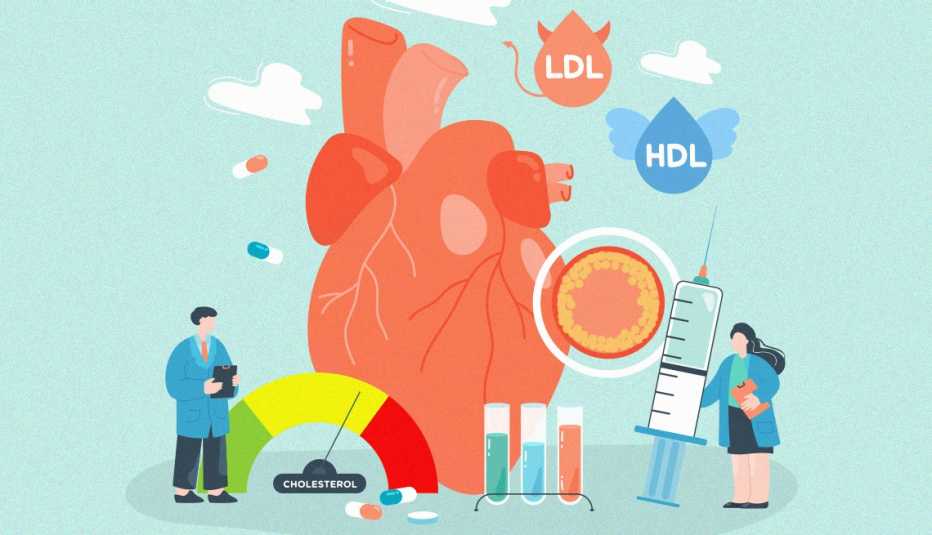AARP Hearing Center


Cholesterol conversations tend to focus on the “bad” kind, more officially known as low-density lipoprotein (LDL) cholesterol, which can raise your risk for heart disease, stroke and other serious health problems. But there’s also a “good” type of cholesterol, called high-density lipoprotein (HDL), and unlike its sibling, it can actually lower cardiovascular risks.
On a very basic level, HDL is used to carry “bad” fat through the liver so we can excrete it out of the body, a process known as reverse cholesterol transport, says neurologist Romie Mushtaq, M.D., who is also board certified in integrative medicine, a specialty that focuses on overall wellness and disease prevention. “That then helps to prevent plaque from building up in arteries in the heart and brain,” Mushtaq says.
The effect of HDL on cardiovascular risks is not insignificant. For example, when LDL (the bad type of cholesterol) goes up 1 percent, the risk for heart attack and stroke goes up 1 percent. On the other hand, when HDL goes up 1 percent, the risk for heart attack and stroke gets lowered by 2 percent, says Stephen Kopecky, M.D., a preventive cardiologist at Mayo Clinic in Rochester, Minnesota.
“It’s more bang for your buck,” Kopecky says. “But we don’t have a pill for it.” The only way to increase your HDL is with healthy habits.
What are optimal HDL levels?
Both men and women should aim for an HDL level that’s at or above 60 mg/dL (milligrams per deciliter), health experts say. (Anything less than 40 mg/dL for men and 50 mg/dL for women is low.) But there is an upper limit to consider.
“If your HDL is over about 80 and you’ve had that all your life, then it actually can be a risk factor for heart disease,” Kopecky says, though it should be noted that an HDL level over 80 mg/dL is considered abnormally high.
Not only for heart disease, but other causes of death as well, according to a 2022 study published in The American Journal of Cardiology. Researchers found that two smaller groups of people with coronary artery disease and HDL levels above 80 had a significantly higher risk of dying in general than those with lower HDL levels.





































































More From AARP
Know the Warning Signs of a Ministroke
Also known as a TIA, the short-lived symptoms can lead to serious complications
8 Ways to Get Heart Healthy
American Heart Association checklist now includes key components of cardiovascular health, from diet to sleep habits
10 Worst Habits for Your Heart
Everyday actions that can negatively affect your health
Recommended for You